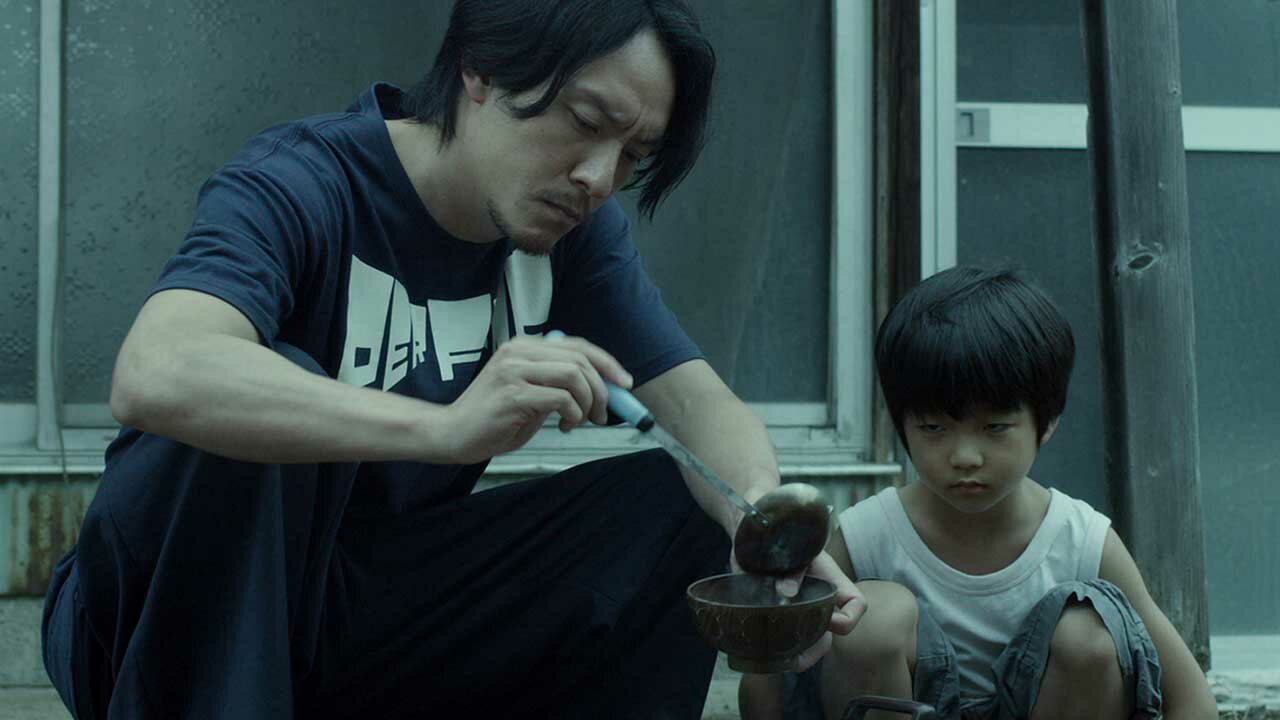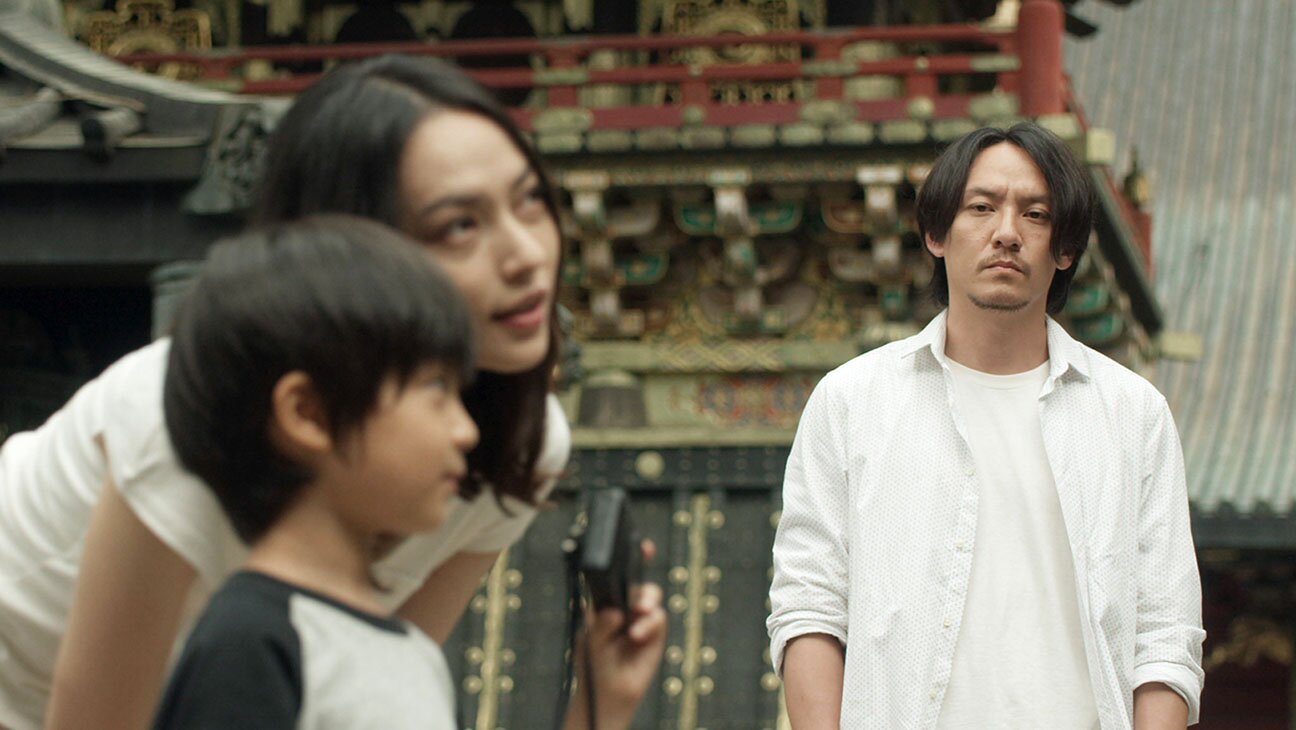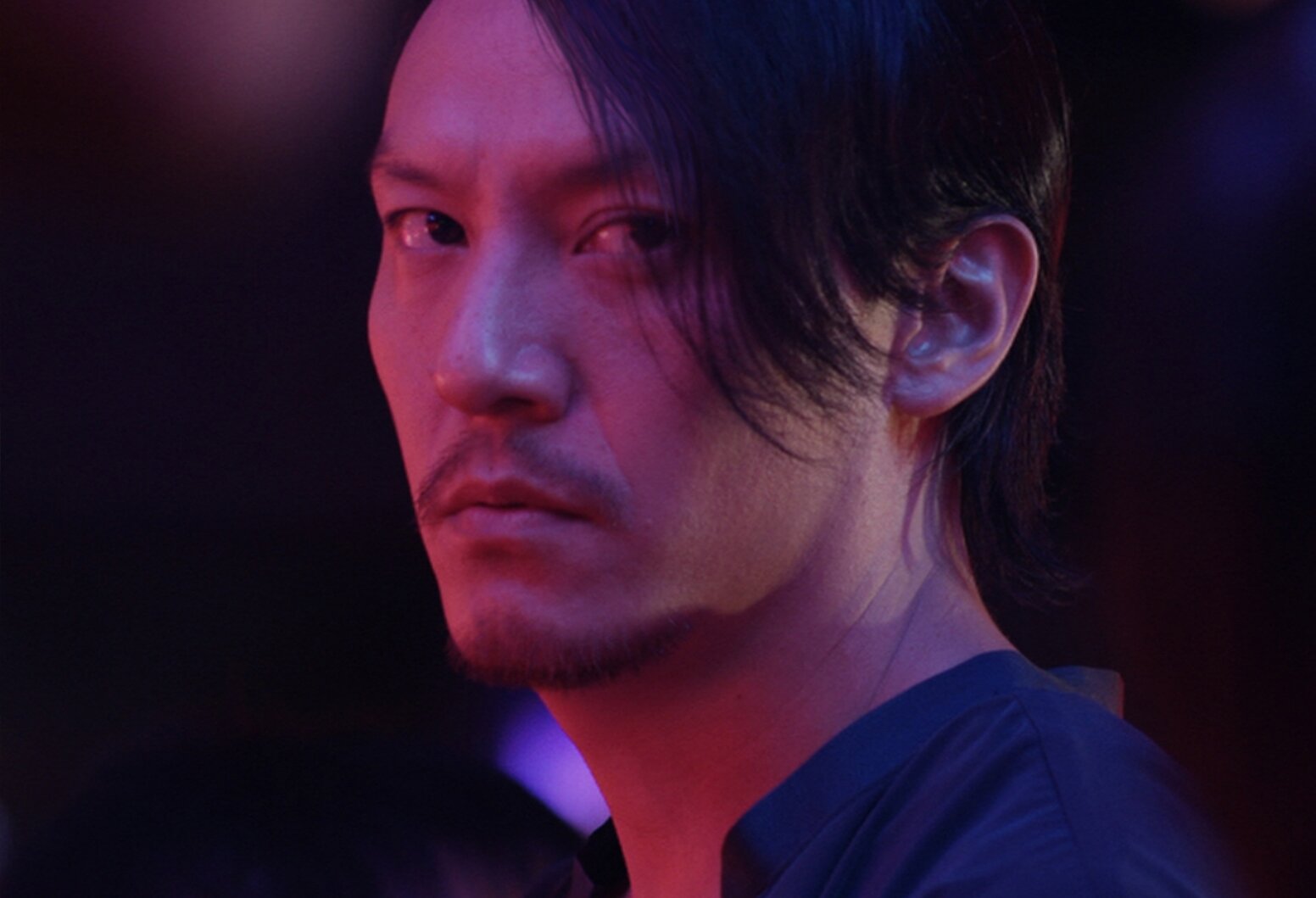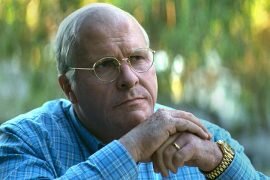Some people might be slightly irritated if, before breakfast, they were to watch a movie in which more than twenty people are massacred in the first five minutes. But, in the case of Mr. Long (selected to compete in this years Berlinale), the massacre of an assortment of evil gangsters sets the perfect, wild tone for this, a most unique and innovative cinematic experience.

Long (Chen Chang), a Taiwanese serial killer, is sent to Japan to get a job done. With the aid of a throbbing techno soundtrack, director Sabu sets the rhythm of Long’s life at a heady pace and in doing so, takes the audience deep down into the Japanese underworld. He shows us strip clubs with beautiful but exploited woman, frightening tattooed guys and alienating cityscapes comprised of long shots and cinematographically pleasing bright neon lights.
Our protagonist, Mr. Long, moves in this world with the gracefulness of a panther and, make no mistake, it’s clear that in the food chain of serial killers, Long is at the top. He plays in the same league as Léon: The Professional, even if things don’t work out quite as planned with regards to completing his job. As you may have guessed, Long doesn’t kill the guy he’s supposed to kill and actually ends up getting badly injured during his failed murder attempt. Afterwards, he takes refuge in a small town where he meets a young boy (Jun) in a bad neighbourhood who brings him water, a first aid kit and a t-shirt. Not used to acts of kindness, the ice cold killer struggles to accept the fact that someone cares about him as a human being, and not as a killing machine.

Slowly he learns that Jun’s mother is a drug addict living in a derelict house, unable to take care of her son. Deciding to help the boy, Long cooks Jun and his mother a mind-blowingly delicious soup, and soon word gets around the neighbourhood that there is a talented new chef in town. Yearning for new culinary delights, the eccentric neighbours (a fantastic cast of overly enthusiastic characters, who are too polite to ask where this strange new outsider has come from, or why he is there) organise a food cart for Long, who then embarks on a career in making Taiwanese beef noodle soup, slowly chopping, slicing and sautéing his way into the hearts of his new neighbours. But, as a true serial killer, Long himself has difficulties getting attached to people and even speaking to them; the Chinese / Japanese language barrier causing tremendous difficulties for both parties. Long instead prefers to act, giving actor Chen Chang the opportunity to pull off a performance which touches the audience more than his words ever could.
In one of the rarer moments in which Long has the courage to ask the boy something, he questions why his change in living circumstances seems to have happened at such a rapid pace, asking the boy, “why is all this happening?” Without skipping a beat, the boy honestly (and hilariously) responds, “because you act cool and don’t say anything.” Hidden within this line however, is a touching and sentimental truth that slowly begins to emerge as the film progresses: kindness doesn’t always need a reason. For Long, this truth is even harder to accept than the transition from killing people to cutting vegetables.

While the film does have some humorous, slapstick elements, Sabu keeps the tone as serious as Mr. Long’s face, which never smiles or registers any emotion. His language is one of action, not of talking. When he helps Jun’s mother overcome her addiction there is still so much space left between them that it almost hurts to see how much he excels at isolating himself. A fact that Long seems to enjoy, because there is danger in getting too attached to someone. However, with good natured neighbours, even an hit man can soften up a bit, and like a beacon of hope in the darkness, there lies the possibility that the fate of the on-screen characters will turn out for the better.
But Mr. Long wouldn’t be a complex, twisted film if the deceptive silences didn’t lead to further cruelty, so when Jun’s mother is raped by one of her ex-pimps and dealers, it doesn’t come as an overwhelming surprise. In this moment, Sabu forbids his characters from ever fully escaping their pasts. With an almost savage cruelty, he taunts us by implying that the wish for a happy ending is foolish and that mankind can never truly be free of their personal history. There is no such thing as an escape or fresh start. In the end, Sabu leaves the audience with a parting gift of yet more corpses, however he does so on a much lighter note than at the beginning, suggesting for a moment that just as a serial killer can transform his knife into a cook’s most valuable utensil, so we too can use our past to create unexpected opportunities for ourselves in our future.




